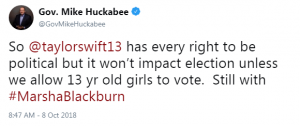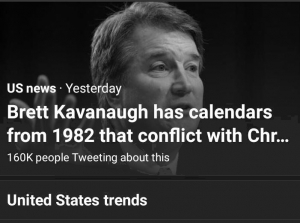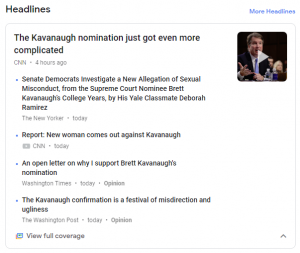Let Them Eat (Starbucks’ Coffee) Cake
A couple of older billionaire white dudes have been shooting off their mouths. One of them is partially clued in. The other one apparently lives on a different planet where the sky is a groovy coffee-colored plaid.
I’m sure I’m preaching to the choir when I point out these facts:
- At least 44 percent of Americans can’t scrape up $400 cash in the event of an emergency. This hasn’t changed for years now.
- 39 percent can weather a $1,000 blow but an emergency beyond that in size would require a credit card.
- One in three Americans has less than $5000 saved for retirement, and 21 percent have no savings at all.
The links above include scolding by financial experts who say Americans need to do a better job of saving. But…
- 40 percent of Americans are struggling to pay for shelter and food. There is simply nothing left to save after they pay for these two critical items.
- Minimum wage workers need 2.5 jobs to pay for a one-bedroom apartment ANYWHERE in the U.S. This statistic has actually gotten worse over the last several years.
Don’t get me started on what college tuition and subsequent debt does to Americans’ ability to save.
We all know that health care costs have not improved and remain the leading cause of bankruptcy in the U.S. even though more Americans have health insurance under ACA.
And rich older white dudes are completely, utterly, hopelessly out of touch about the financial facts of life for nearly half of Americans let alone the next 2-3 deciles.
Like Wilbur Ross — our Commerce Secretary who lied about his assets and clearly knows nothing about Americans’ daily commerce — struggled to comprehend why federal employees might need to use a food bank after missing a paycheck.
Just get a loan, Ross thinks. Sure, sure, banks give signature loans to people without any collateral let alone a source of income all the time. Come on, Wilbur: would you invest in a bank offering those kinds of terms to the average Joe/Josephine off the street?
And then there’s Trump, who thinks we can just ask the grocer to extend some credit for an unspecified period of time. Right — a nationwide grocery chain clearing 1-3% a year in profits can afford to extend credit.
So goddamned clueless he is. I’m only surprised he didn’t tell furloughed federal workers he’d give them a 5% discount to play golf at one of his courses during their free time.
76-year-old billionaire Michael Bloomberg, who thinks he’s still young enough to run for president in 2020, trashed Sen. Elizabeth Warren’s wealth tax proposal as “probably unconstitutional,” thereby revealing his brain’s atrophy. If taxing higher levels of income wasn’t unconstitutional under Hoover, Roosevelt, Truman, Eisenhower, Kennedy, Johnson, Nixon, Carter, then it probably isn’t unconstitutional.
And then Seattle coffee magnate Howard Schultz popped off at Rep. Alexandria Ocasio-Cortez’ proposals to increase marginal tax rates on the uber-wealthy, calling her “a bit misinformed” and her proposal “un-American.”
Except the U.S. had higher tax rates on the wealthy, for most of the 20th century. The country could afford to build more infrastructure; it built a successful public school system and went to the moon. How nice for Schultz that he could grow up and become a young entrepreneur in that economic environment.
(Put a pin in here for future reference, as a reminder that Schultz not only called AOC “un-American” but Sen. Kamala Harris, too. It’s as if he has a problem with women of color…)
Schultz thinks he has become a billionaire all on his own, as if the increasingly fascist political system with its active suppression of younger, marginalized citizens played no role in his wealth accumulation.
As if the last two decades of stagnant wages due to employment monopsony, repressive Federal Reserve policies, and the real estate market haven’t helped line his pockets by assuring low-wage workers get locked in and unable to move to better paying jobs.
Schultz has been able to accumulate massive amounts of wealth on the backs of people who aren’t being paid living wages, out of the wallets of those whose limited resources allows them to buy a coffee but not a house or health care. He’s rolling in a sea of cash because minimum wage workers are living in little more than indentured servitude.
You know what’s really un-American?
An ungrateful and narrow-minded billionaire white dude who doesn’t think living wages and health care for everyone are fair, who thinks that higher taxes after his first $50 million are theft.
A purveyor of luxury beverage products unable to grasp the unselfish commitment it will take to form a more perfect Union, establish Justice, insure domestic Tranquility, provide for the common defense, promote the general Welfare, and secure the Blessings of Liberty for all the people.
At least Bloomberg sees the danger Schultz’s presidential candidacy poses to this country.
But Schultz isn’t in it for the country’s benefit. He’s in the race for himself. It’s clear he’s done the number crunching and determined that it’s cheaper to run for POTUS even if he were to cause Trump to win re-election. (I’ll bet he’s even figured out how to write off his exploratory trips around the country as a business expense.)
Because the campaign expenses are less than the cost to his personal wealth if he were taxed at a higher rate and if he were also forced to pay living wages to his workers.
What a pity Schultz hasn’t calculated how much more overpriced, excessively roasted coffee minimum wage workers can buy if they didn’t have to worry about health care expenses on top of their rent.
Treat this as an open thread.
















